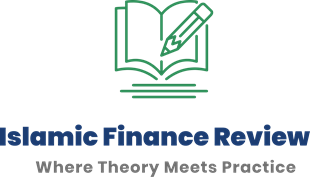
Building Long-Term Wealth Using Islamic Finance Principles
- Post by: wp-islamicfinancereviewcouk
- March 10, 2025
- No Comment
Wealth building is an essential part of financial well-being, but in Islam, it must be done ethically and in accordance with Shariah-compliant principles. Unlike conventional wealth accumulation, which often relies on interest-based investments and speculative markets, Islamic finance promotes risk-sharing, ethical investments, and social responsibility.
For Muslims seeking to grow their wealth while ensuring barakah (blessings) and halal earnings, Islamic finance provides a structured approach that prioritizes fairness, justice, and long-term sustainability. This article explores how to build and sustain long-term wealth using Islamic finance principles.
1. The Importance of Wealth in Islam
Islam does not discourage wealth accumulation; rather, it encourages Muslims to earn, save, and invest responsibly while avoiding haram financial practices. Wealth is viewed as an amanah (trust) from Allah and should be used for personal well-being, family security, and helping the community.
Al-Quran 28:77: “Seek with what Allah has given you the Hereafter, but do not forget your share of the world…”
However, wealth must be managed within ethical boundaries:
✅ Avoiding Riba (Interest): Interest-based savings accounts and loans are haram.
✅ Engaging in Halal Investments: Stocks, real estate, and businesses must be compliant with Shariah law.
✅ Giving Zakat: Purifying wealth by donating 2.5% of eligible savings annually.
2. Halal Saving Strategies for Long-Term Growth
Saving is the first step toward financial stability, but not all savings methods are Shariah-compliant. Many conventional savings accounts generate interest, which must be avoided.
Instead, consider these halal savings options:
✅ Shariah-Compliant Savings Accounts
- Offer profit-sharing instead of interest.
- Some Islamic banks in the UK offering these accounts include:
✅ Gold Savings
- Gold is a stable store of value and can be used for long-term savings.
- Some Islamic banks offer gold investment accounts.
✅ Waqf (Islamic Endowment)
- A long-term charitable investment that benefits the community while securing wealth for future generations.
3. Investing the Halal Way: Wealth Growth Through Ethical Investments
To grow wealth, simply saving money is not enough. Investing in halal, ethical, and socially responsible sectors allows for sustainable financial growth.
Here are some of the best Shariah-compliant investment options:
✅ Shariah-Compliant Stocks & Mutual Funds
- Invest in halal businesses (avoiding alcohol, gambling, interest-based banking, and unethical industries).
- Wahed Invest – A halal investment platform offering stocks, Sukuk, and ETFs.
- Islamic Finance Guru (IFG) – Provides insights into halal investing and financial planning.
✅ Islamic Bonds (Sukuk)
- An alternative to conventional bonds that does not involve interest.
- Instead of paying fixed interest, Sukuk investors earn profits from tangible assets.
✅ Real Estate Investment
- Buying rental properties or real estate funds that comply with Shariah principles.
- Avoid properties financed through interest-based mortgages.
✅ Halal Business Ventures (Musharakah & Mudarabah)
- Investing in or partnering with businesses where profit and risk are shared.
- Musharakah: Joint partnership where profits are shared based on agreement.
- Mudarabah: One party provides capital, and the other provides expertise.
4. The Role of Zakat & Sadaqah in Sustaining Wealth
One of the most overlooked aspects of wealth-building is giving back to society. Islam teaches that wealth should circulate fairly in the community, preventing hoarding and economic disparity.
✅ Zakat:
- 2.5% of savings must be donated annually to purify wealth.
- Helps the poor, supports education, and strengthens the Muslim community.
- National Zakat Foundation offers automated zakat calculations and payments.
✅ Sadaqah:
- Voluntary charity beyond Zakat.
- Can be given at any time and increases barakah in wealth.
- Supports Waqf projects, mosques, and community initiatives.
Hadith (Sahih Muslim 2588): “Charity does not decrease wealth.”
5. Planning for Retirement the Halal Way
Many conventional retirement funds are invested in interest-based securities, making them impermissible under Islamic law. However, there are halal options available.
✅ Shariah-Compliant Pension Plans
- Nest Shariah Fund – A state-backed halal pension scheme in the UK.
- Wahed Invest Pension Plans – Halal retirement planning solutions.
Al-Quran 59:7: “Wealth should not circulate solely among the rich among you.”
By setting up an Islamic pension fund, Muslims can secure their future while ensuring their retirement savings remain halal.
Conclusion: A Faith-Based Approach to Long-Term Wealth
Islamic finance offers a balanced and ethical approach to wealth-building. By saving in halal ways, investing ethically, avoiding riba, and giving Zakat, Muslims can achieve financial success without compromising their faith.
The key to long-term financial stability is not just earning wealth but managing it in a way that benefits individuals, families, and the Muslim community.
💡 Take Action Today:
✅ Open a Shariah-compliant savings account.
✅ Start halal investing in stocks, Sukuk, or real estate.
✅ Pay your Zakat and increase Sadaqah.
✅ Plan for halal retirement options.
Al-Quran 64:16: “So fear Allah as much as you are able and listen and obey and spend [in His cause]; it is better for yourselves.”
